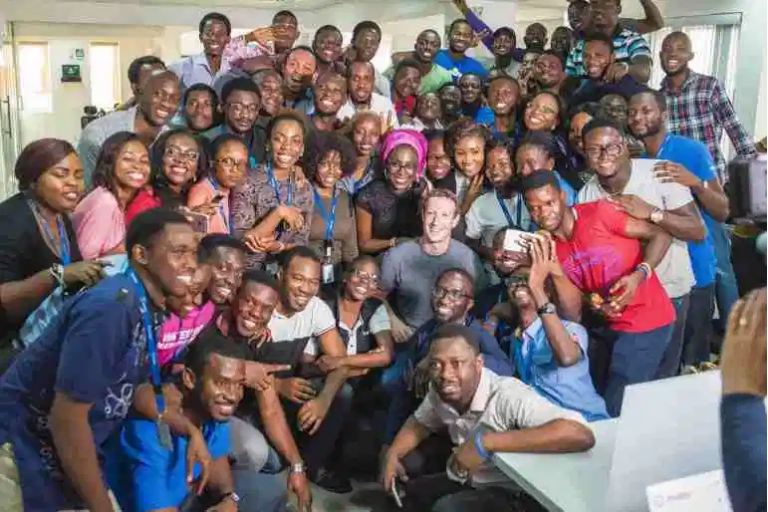
If you run a startup in Lagos, Accra, Nairobi, or in any African city, and your playbook is Silicon Valley’s, you will likely not do very well. There are many variables in emerging markets which make Silicon Valley model largely irrelevant. My suggestion is that you pick your perspectives from China and India: those nations share many things in common with Africa. This is not to say that Silicon Valley playbook will not succeed in Africa. My point is that you have a higher chance of success if you invent yours or at least copy Chinese or Indian firms.
When Alibaba began, evidently inspired by Amazon, they noticed that the main problem was payment, and not necessarily ecommerce. When India’s Flipkart began, payment was also before it. Both firms dropped the Amazon playbook (Amazon did not create any scaled payment infrastructure) and went into building a payment system. Amazon did not have any payment issue because Mastercard, Amex and Visa had solved those frictions for it. But in India and China, payment was just a big opportunity as ecommerce.
Largely, in emerging markets, most entrepreneurs become parallel entrepreneurs as they have to build enablers to seed the ecosystems they have to operate. While Silicon Valley will preach doing one thing very well (because others are doing other things great as well), if you use that playbook, you will run out of gas. Our markets are still at infancy to run that playbook. Yes, Jumia and Konga quickly realized that ecommerce was not just the friction, payment was a big problem. Largely, you would have expected them to go after it at scale since payment has to come before ecommerce. Without electronic payment, you cannot have electronic commerce; it is as simple as that. The implication is that until Nigeria can fix digital payment, our ecommerce will have a ceiling. Of the $301 billion spent in Nigeria, on consumer transactions, 98% is still on cash!
Register for Tekedia Mini-MBA edition 19 (Feb 9 – May 2, 2026): big discounts for early bird.
Tekedia AI in Business Masterclass opens registrations.
Join Tekedia Capital Syndicate and co-invest in great global startups.
Register for Tekedia AI Lab: From Technical Design to Deployment (next edition begins Jan 24 2026).
Why African Is Different From Silicon Valley
There are many reasons African founders cannot just use Silicon Valley playbook. Here are some reasons.
- Resources: You are under-resourced and that means you need to find how to survive daily. Silicon Valley does not have that problem.
- Regulation: You are mostly under-regulated and that means you may be writing the rules as you go. That means you may be the one thinking for the government.
- Political instability: The national policies keep changing and that means you plan per election cycle. U.S. core policies are largely stable irrespective of the president in power.
- Suppliers: Your suppliers typically disappoint you and that means you may plan to vertically integrate as quickly as possible.
- Macroeconomic paralysis: The macroeconomic issues you deal with are huge and the forms keep evolving.
- Non existent infrastructure: When you have two generators and work on diesel supplies, your counterparts in Silicon Valley may not understand. Electricity has been solved there for decades. But you are your own local government, providing security, power, water and more.
- Customer Base: You have a thin customer base with poor purchasing power. Also, these customers are price-sensitive unlike the Americans that can shop as a hobby.
- Currency fluctuation: Most currencies are pegged on the dollar. That gives Silicon Valley stability you do not have. Silicon Valley does not deal with currency issues because they are the currency.
- Competition: Across most African capitals, it is not the best ideas that win. Most times, your contacts are more important than your products.
- IP protection laws: The Supreme Court of Nigeria has been booked for non-political cases till the end of 2021. That means justice in Nigeria is severely delayed. A court case that closes in Silicon Valley in months will drag for years in Nigeria and broad Africa.
- Talent: You are going to work to retain brilliant people in a region with severe unemployment. That should change your equation and how you approach the game plan. In Silicon Valley, they have talented people money can easily buy in abundance. In your case, you have few people to source in a region with severe unemployment.
Mentors: Mentors are scarce and failure rate is high because the support system is low in Africa. In Silicon Valley, they have these people they call Venture Capitalists who are simply professors of business but also write cheques to people.
You Are Not A Disrupter
In Africa, you need to be humble on the use of the world “disruption”. Yes, always remember that you have nothing to DISRUPT because technically you are likely the one starting the sector. If you work in agtech and you think you are disrupting agriculture, you are wrong. Africa has no strong agro-industry that is open to disruption. My point is this: you are likely starting a new sector over disrupting something as typical in Silicon Valley. I feel bad when people write “I will disrupt the transportation sector in Africa” – who told you that we have one to start with. Largely, you are going to build a new transportation sector since as of today we cannot say we have any within the lens of Silicon Valley.

Asset-Hybrid Is Fine
Do not be blindfolded by the mantra of asset-light. It is easy for American companies like Uber and Lyft because they can connect into other enablers which are asset-heavy. But where you do not have such, you may be forced to help build them. Yes, if you are in the business of moving food produce from rural areas to cities, using aggregated buses, a time may come when you will notice that you do not have enough buses. There is nothing wrong if you have to revisit the playbook to put supply through financial modeling via a Special Purpose Vehicle. American and British firms may not have such problems but Indian firms surely do. So, the asset-light company becomes a little asset-heavy to become what I call asset-hybrid.
Do Not Break Fast
Do not break things very fast because you want to blitz-scale. It does not work easily here because most markets are heterogeneous which means you cannot scale one business model. Within countries like Nigeria, the game plan for Lagos may be different from the one you will use in Yobe.
Break things and scale fast is irresponsible in Africa. If you have that philosophy, you will fail. One government agency may hold an approval for 6 months and there is nothing you can do. Also, the rapid somersaults on policies will make that strategy challenging. You need to have a strategy that puts resilience and sustainability at the heart of your business. Growing by all means and cost will destroy you because whenever there is a major change in the macroeconomic system, you will be off.
This does not mean that you should not scale. My point is that you cannot blindly follow a Silicon Valley playbook that can be activated in 50 American states which are largely homogeneous once the hypothesis has been validated in their two states.
All Together
It is important to understand that what Silicon Valley tech titans do in U.S. is different from their playbooks in Africa and other emerging regions. Google is a quasi-payment company in India even though it has none of such in U.S. Facebook is investing in connectivity systems in Africa when in U.S., it was not an issue. Yes, for every new sign-up Facebook gets, Wall Street watches: IP address is IP address. .My point is that these U.S. firms are not doing them for charity, they have to become parallel ecosystems to pursue their missions. Yes, they have to do things beyond that core mission which they have pursued in America because they do not have other entities helping them to fix the enabling frictions in emerging markets.
To do that, they have to open new playbooks, beyond what they have preached in Silicon Valley. Google is now a fiber-satellite-balloon telecom company, and it is just getting started. You need to understand that Silicon Valley and broad American is different even when they tell you that Mark Zuckerberg and Bill Gates are dropouts; personally, I do not see them as dropouts. Read beyond the playbooks and think what makes sense here. Google and Facebook do not follow their Silicon Valley playbooks when they come here: you need to understand that reality.
---
Connect via my
LinkedIn |
Facebook |
X |
TikTok |
Instagram |
YouTube




I call this Afri-Biz-Edu 101. Such a great insight!
I have always been an advocate of a customized strategy for any niche you want to serve. While templates from Silicon Valley clime can be a guide for business on our African soil, it is wisdom to factor in the cogent African peculiarities.
You are a big blessing to our generation. Thanks sir.
It takes us back to the old saying, “experience is the best teacher”, only those who have tried things here know the scores; a lot of things are perfect in classrooms and laboratories, until you go out there.
The economics or social science maxim of ‘other things being equal’ is inconsequential here, just ensure that you are planning and working on all variables, nothing is ever equal or constant in this terrain.
You must come prepared, with flexibility and resilience being your default traits, because many things will test both your temperament and intellect.
Fine piece, filled with insights.
Great insights there, Prof. On a lighter note, this is the reason why African-authored motivational books should be flying off the print works more instead of the hugely popular but lacking-in-local-experience American copies?
Thanks for that really enlightening perspective Sir. Will be very useful!
This article is yours is my favorite for the quarter, Prof. Well done!
This article came at a time when I really needed to read something on those lines!
Thanks Prof for taking your time to share your thoughts.
Thank you our great community for the response on this piece. As an entrepreneur myself, I can confirm that adapting foreign models, and inventing our own models, will be the paths to that promise we hope.